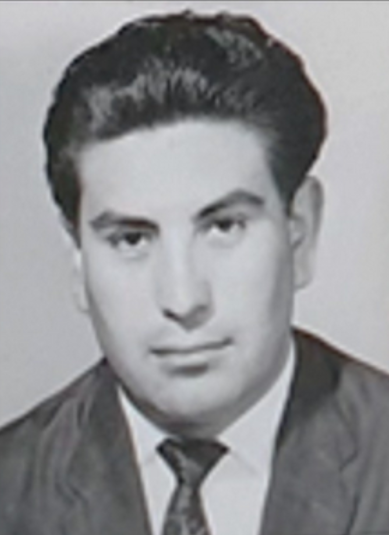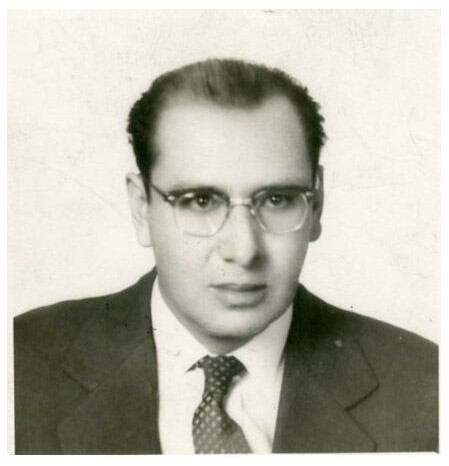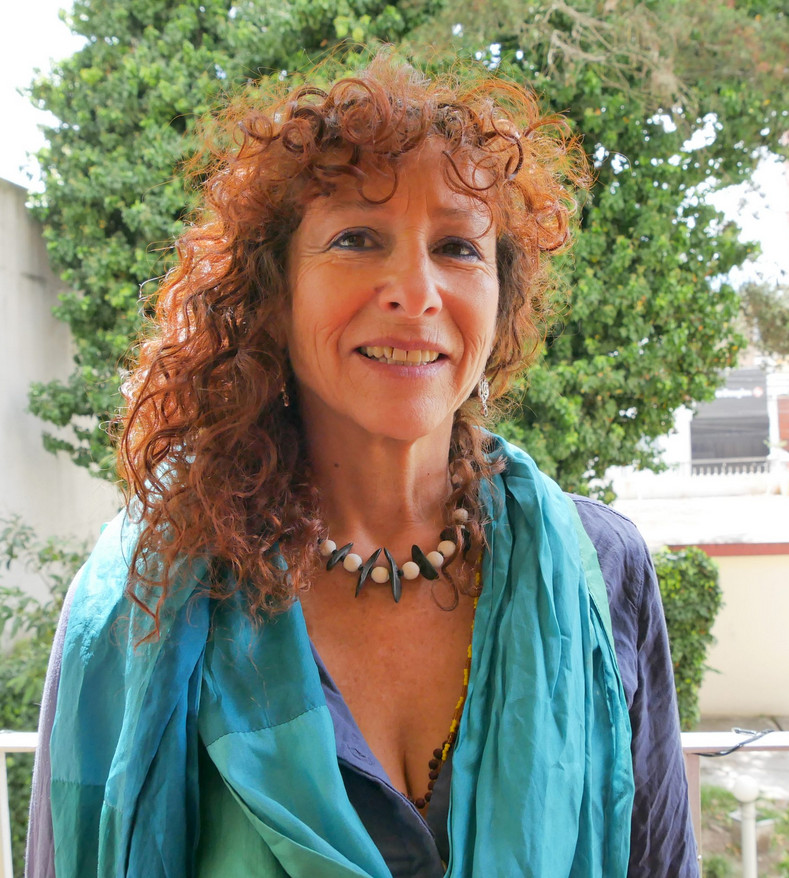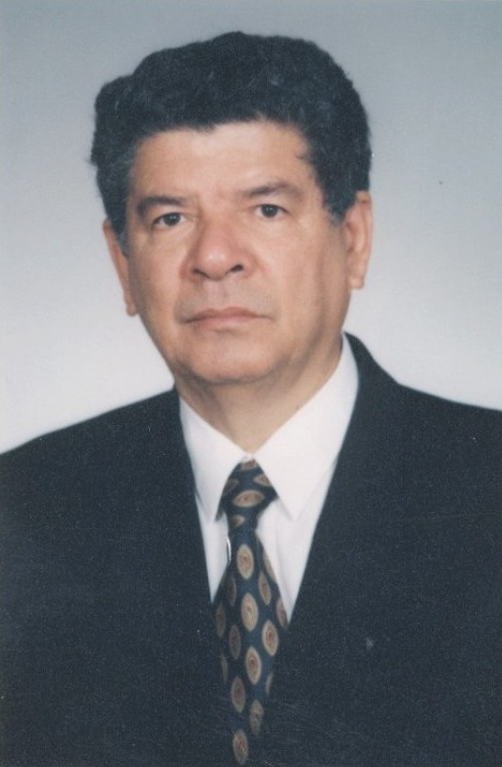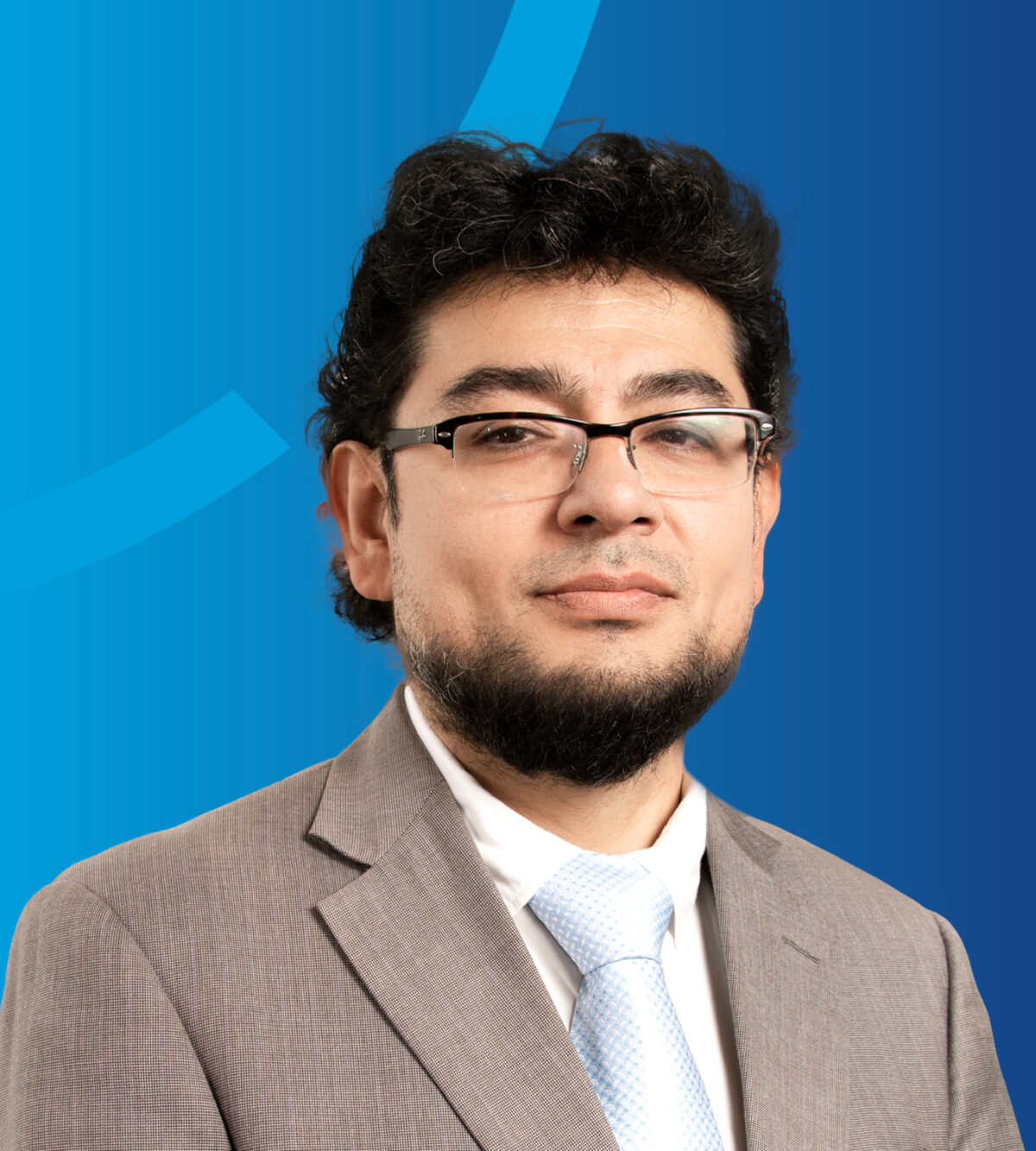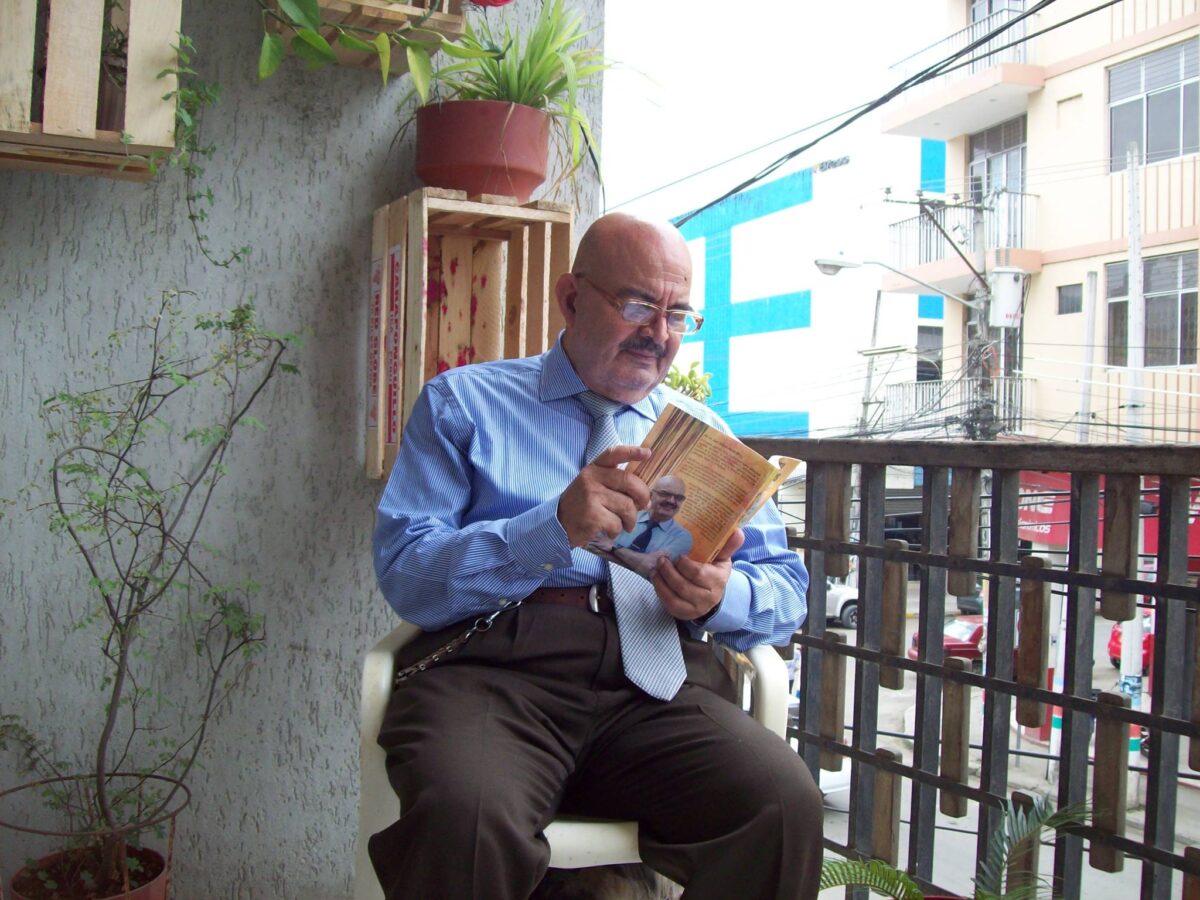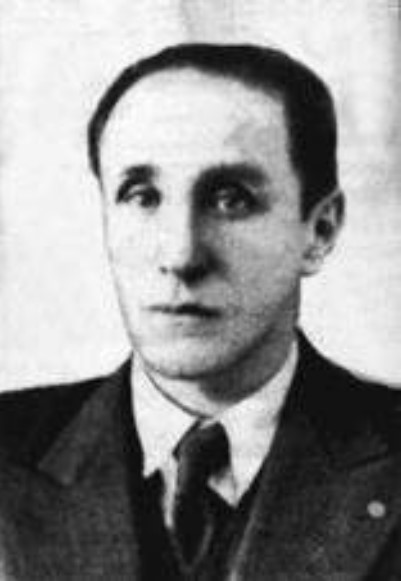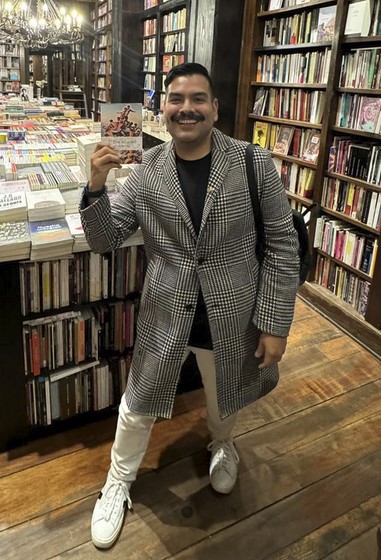Guido Mera Vera (Tixán, January 25, 1934 – Riobamba, July 14, 2003) was an Ecuadorian writer, poet, and physician, known for his prolific literary work spanning poetry, novels, essays, and short stories. Educated in medicine at the University of Guayaquil and institutions in the United States, he balanced a career in medical research with a passionate commitment to literature, producing eleven published books including Góndolas de Espuma, El Minuto Eterno y la Envoltura del Ser, and Murallas de Cristal. His works, marked by philosophical skepticism and social reflection, earned him national acclaim, and he won the first prize in the 1958 Juegos Florales of the University of Guayaquil. Celebrated as a cultural patron, Mera Vera also served as a key member of the Casa de la Cultura Ecuatoriana, leaving an enduring legacy in Ecuadorian literature and intellectual thought.
Continue reading “Guido Mera Vera”Category: Ecuadorian Novelists
Ecuadorian novelists, including stories, translations, bibliographies, biographies, interviews, articles, and much more. Novelists from Ecuador in one place.
César Espíndola Pino
César Espíndola Pino (Tulcán, 1917–Unknown) was an Ecuadorian author and lawyer. Born in Tulcán, he trained in law and served as Deputy Secretary in Ecuador’s Ministry of Social Welfare, which informed his professional interest in labor and legal issues. His novel Fuego en la ciudad (1941) examines the struggles of a middle-class man facing economic decline. His poetry collection Guijarros (1942) includes micropoems that reflect a minimalist style and themes of nature and impermanence, while Lo que el poeta me dijo (1951) consists of prose poems exploring solitude and introspection. Espíndola Pino also published El caso de “Pusuquí Grande” y anexas (1965), a legal analysis of land and labor disputes in Ecuador. He was associated with cultural institutions such as the Ateneo Ecuatoriano and the Casa de la Cultura Ecuatoriana.
Continue reading “César Espíndola Pino”Patricia Velásquez de Mera
Patricia Velásquez de Mera, formerly Patricia Velásquez Villacís (Guayaquil, Ecuador, 1951), is an Ecuadorian-American poet, novelist, and visual artist. She began her literary career with the novel El Porvenir de Aniata (1996) and later published poetry collections such as Entre dos ríos (2001) and Mapa de amor y de dolor (2007) under her married name, Patricia Velásquez de Mera. In addition to her literary accomplishments, she embarked on a painting journey at age 45, adding a new dimension to her artistic expression. Often using the pseudonym “Dagor” for her online poetry and art, Velásquez de Mera’s work explores themes of love, existence, and human emotion, seamlessly blending her literary and visual artistry into a unified creative vision.
Continue reading “Patricia Velásquez de Mera”Gilberto Molina Correa
Gilberto Molina Correa (Cañar, September 20, 1915 – Unknown) was an Ecuadorian poet, novelist, playwright, short story writer, essayist, and educator. His diverse body of work spanned multiple genres, including notable contributions such as the novel Sismos y abismos (1969), the short story collection Almas conturbadas (1962), and the play Censo sin consenso (1962). He also authored the poetry collection La inefable presencia (1966). He was an influential advocate for educational reform and a school director, serving as head of Escuela Municipal “Joaquín Donoso” in Vinces. Molina Correa left a lasting mark on both Ecuadorian literature and education.
Continue reading “Gilberto Molina Correa”María Eugenia Paz y Miño
María Eugenia Paz y Miño (Quito, Ecuador, 1959) is an Ecuadorian writer and anthropologist known for her contributions to literature and cultural studies. She has published notable works across various genres, including the acclaimed novel La puerta del Ilaló (2008) and the political thriller Que no quede huella (2020). Paz y Miño’s writing often intertwines her anthropological background with her literary pursuits, exploring themes of culture, politics, and human relationships. She has received several prestigious awards, such as the Rumiñahui de Oro and the Fondo Editorial del Ministerio de Cultura del Ecuador.
Continue reading “María Eugenia Paz y Miño”Rodolfo Bueno Ortiz
Rodolfo Bueno Ortiz (Esmeraldas, 1937) is an Ecuadorian mathematician, writer, and intellectual. He became the first Ecuadorian to earn a degree in mathematics after studying in the Soviet Union, where he also developed a deep interest in literature. Bueno is the author of several works, including Pasiones a la sombra del Kremlin (1999), a novel that explores themes of desire and power against the backdrop of Soviet life, and Mojiganga (2011), a political satire. He has also written extensively on historical and political topics, blending his scientific rigor with philosophical and social commentary, and was awarded the Pushkin Medal in Russia for his cultural contributions.
Continue reading “Rodolfo Bueno Ortiz”Carlos Aulestia
Carlos Hugo Aulestia Páez (Quito, 1973) is an Ecuadorian writer, literary critic, and professor. He holds a Ph.D. in Latin American Literature from the Universidad Andina Simón Bolívar and is currently the dean of the Faculty of Communication, Linguistics, and Literature at the Pontificia Universidad Católica del Ecuador. Aulestia has authored works spanning fiction, poetry, and essays, including the novel La obscuridad (2016) and the short story collection Flaquita my love (1995). His research focuses on Ibero-American literature, with a notable contribution through his doctoral thesis on Ecuadorian poets Medardo Ángel Silva, César Dávila Andrade, and David Ledesma Vásquez.
Continue reading “Carlos Aulestia”Wadía Lauando Vélez
Wadía Antón Lauando Vélez (Portoviejo, 1940) is an Ecuadorian poet and novelist renowned for his works that explore rural life, nature, and mythology, with a focus on the cultural heritage of Ecuador’s coastal Montubio region. His notable publications, such as Corazón de colibrí (2006) and Laberinto de los sueños (2011), showcase his lyrical style and deep connection to the Manabí region. In 1994, he founded the Provincial Poetry Contest “El Poeta y Su Voz” while serving as President of the Casa de la Cultura in Manabí and later served as Director of its Literature Section, actively promoting Ecuadorian literature.
Continue reading “Wadía Lauando Vélez”Viviana Cordero
Viviana Cordero (Quito, August 3, 1964) is an Ecuadorian writer, playwright, and film director. She studied Modern Literature at the Sorbonne in Paris and began her career in 1990 by co-producing Sensaciones, the first Ecuadorian feature film made in 35mm. Cordero is known for her novels, including El Paraíso de Ariana (1994), El Teatro de los Monstruos (2000), and Mundos Opuestos (2010), as well as for her significant contributions to Ecuadorian theater and cinema. Her works explore themes of identity, memory, and societal roles, particularly focusing on women’s experiences.
Continue reading “Viviana Cordero”Martha Chávez
Martha Chávez Negrete (Guayaquil, 1967) is an Ecuadorian doctor, psychiatrist, and writer. She is known for her contributions to contemporary Ecuadorian literature, particularly in the genres of short stories and novels. Her notable works include Precisando el sentido (1999), Uno de estos tristes días virtuales (2003), and her acclaimed novel La memoria corre a mil (2008), which won third prize in the genre of novels for its exploration of memory and identity. In addition to her literary career, Chávez is also a university professor and a contributor to various literary magazines in Ecuador.
Continue reading “Martha Chávez”Renato Gudiño
Renato Gudiño (Quito, July 31, 1950) is an Ecuadorian author known for his versatility across multiple literary genres, including fiction, science fiction, psychological narratives, and noir. Educated in Ecuador and Romania, Gudiño’s works often explore themes of identity, transformation, and the human experience, drawing on his cosmopolitan background. His notable publications include La Transmutada (2004), Destino de Papel (2007), Cataplumes del Amor (2008), and El Edén de la Tenue Luz (2009), and his stories have gained international recognition, with Cataplumes del Amor being translated into Romanian as Delirul Iubirii (2014).
Continue reading “Renato Gudiño”Carolina Andrade
Carolina Andrade (Guayaquil, 1963) is an Ecuadorian writer, university professor, and journalist known for her poignant short stories and novellas. She studied in Mexico at the literary workshops of the Sociedad General de Escritores Mexicanos (SOGEM) and later earned postgraduate degrees in Education, Humanistic Studies, and Communication. Her notable works include Detrás de sí (1994), De luto (1999), and the novel A orillas de un relato (2024), which explore themes of death, existential absurdity, and human fragility. Andrade’s works have been translated into multiple languages and featured in prestigious literary anthologies.
Continue reading “Carolina Andrade”Denise Rosales
Denise Rosales (Guayaquil, 1954) is an Ecuadorian novelist and short story writer known for her only novel, Los vértices del triángulo (1994), which explores themes of love and desire through a bold narrative of a love triangle. Her work has been featured in anthologies such as Libro de posta (1983), Frauen in Lateinamerika 2 (1987), and Antología de narradoras ecuatorianas (1997). Rosales has lived in Milan, Italy, and is recognized as part of the movement of prominent Ecuadorian women writers who gained recognition in the 1980s and 1990s.
Continue reading “Denise Rosales”Carlos Aguilar Vásquez
Carlos Aguilar Vásquez (Gima, Ecuador, September 15, 1897 – Azogues, Ecuador, April 12, 1967) was an Ecuadorian poet, novelist, and doctor. His work spans multiple genres, including novels, poetry, and essays. Notable works include Los Idrovos (1942), a historical novel exploring Ecuador’s political and social dynamics, and La Cruz del Machete (1928), a narrative about a guerrilla fighter. He also wrote poetry collections like Versos Oscuros (1953) and essays on public health and anti-alcoholism, reflecting his deep social commitment. In addition to his literary contributions, he held various public service roles and received the Fray Vicente Solano award in 1964 for his cultural influence.
Continue reading “Carlos Aguilar Vásquez”David Aguirre
David Aguirre (Guayaquil, 1980) is an Ecuadorian author and clinical psychologist. He holds advanced degrees, including a Master’s in Psychoanalysis and a Master’s in Philosophy of Religion, along with a Doctorate in Psychology. His debut novel, El Dios del Árbol (2024; “The God of the Tree”), blends dark fantasy and psychological horror, reflecting his background in psychoanalysis. Aguirre’s work delves into themes of trauma, social alienation, and the grotesque, with influences from modern horror cinema. He presented the novel at the Guayaquil International Book Fair, establishing himself as a rising voice in Ecuadorian literature.
Continue reading “David Aguirre”